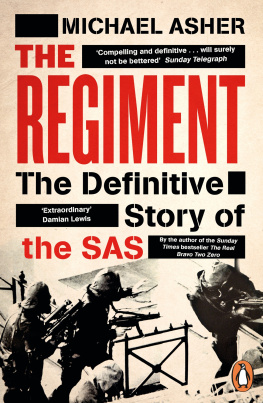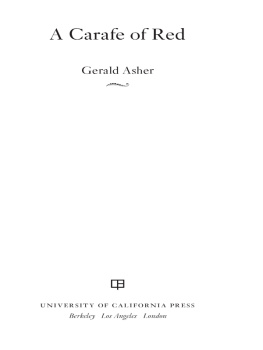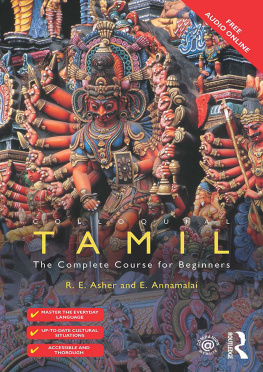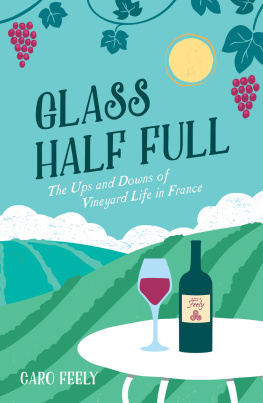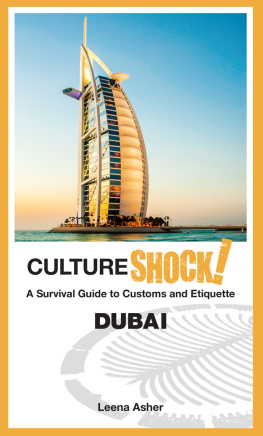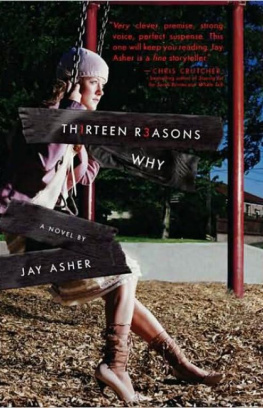Asher - Vineyard in My Glass
Here you can read online Asher - Vineyard in My Glass full text of the book (entire story) in english for free. Download pdf and epub, get meaning, cover and reviews about this ebook. year: 2011, publisher: University of California Press, genre: Detective and thriller. Description of the work, (preface) as well as reviews are available. Best literature library LitArk.com created for fans of good reading and offers a wide selection of genres:
Romance novel
Science fiction
Adventure
Detective
Science
History
Home and family
Prose
Art
Politics
Computer
Non-fiction
Religion
Business
Children
Humor
Choose a favorite category and find really read worthwhile books. Enjoy immersion in the world of imagination, feel the emotions of the characters or learn something new for yourself, make an fascinating discovery.

- Book:Vineyard in My Glass
- Author:
- Publisher:University of California Press
- Genre:
- Year:2011
- Rating:5 / 5
- Favourites:Add to favourites
- Your mark:
- 100
- 1
- 2
- 3
- 4
- 5
Vineyard in My Glass: summary, description and annotation
We offer to read an annotation, description, summary or preface (depends on what the author of the book "Vineyard in My Glass" wrote himself). If you haven't found the necessary information about the book — write in the comments, we will try to find it.
Vineyard in My Glass — read online for free the complete book (whole text) full work
Below is the text of the book, divided by pages. System saving the place of the last page read, allows you to conveniently read the book "Vineyard in My Glass" online for free, without having to search again every time where you left off. Put a bookmark, and you can go to the page where you finished reading at any time.
Font size:
Interval:
Bookmark:
 A Vineyard in My Glass
A Vineyard in My Glass
The publisher gratefully acknowledges
the generous support of the General
Endowment Fund of the University
of California Press Foundation.
Gerald Asher


University of California Press, one of the most distinguished university presses in the United States, enriches lives around the world by advancing scholarship in the humanities, social sciences, and natural sciences. Its activities are supported by the UC Press Foundation and by philanthropic contributions from individuals and institutions. For more information, visit www.ucpress.edu .
University of California Press
Berkeley and Los Angeles, California
University of California Press, Ltd.
London, England
2011 by Gerald Asher
Library of Congress Cataloging-in-Publication Data
Asher, Gerald.
A vineyard in my glass / Gerald Asher.
p. cm.
Includes index.
ISBN 978-0-520-27033-6 (cloth : alk. paper)
1. Wine and wine making I. Title
TP548.A7918 2011
663'.2dc22 2011011318
Manufactured in the United States of America
20 19 18 17 16 15 14 13 12 11
10 9 8 7 6 5 4 3 2 1
In keeping with a commitment to support environmentally responsible and sustainable printing practices, UC Press has printed this book on Natures Book, a fiber that contains 30% post-consumer waste and meets the minimum requirements of ANSI/NISO Z39.481992 (R 1997)
(Permanence of Paper).
In memory of Jane Montant and Margaret Costa
White Wines of the Southern Rhne:
A Fresh Look at Old Varieties
Sancerre and Pouilly-Fum:
Terres Blanches, Caillottes, and Silex
Saar and Ruwer: Riesling, Slate, and
Long Summer Days
Brunello di Montalcino:
Elegance from an Untamed Land
Like many others, I drifted into the wine trade. A part-time job in a wine shop led to a full-time one with a small distributor. That set the stage for serious employment with a major London wine importer. Thanks to the firms standing, I was able to attend the weekly lectures and tastings conducted by trade luminaries in the paneled hall of the Vintners Company, one of Londons medieval livery companies. There, along with my peers from other import houses, I was taught the basics of wine.
Since then, formal wine trade education in England has evolved, starting with diploma courses and leading to the status of Master of Wine. But in the 1950s, the series of twelve lecture-tastings every spring at Vintners Hall was devised to cover, over a three-year cycle, most of the wines and most of the challenges we were likely to face in our professional lives. We were expected to read whatever was available, of course, and to take advantage of every opportunity that arose for tasting among ourselves.
At the end of each series, there was a competitive exam, and the three top-scoring candidates were awarded travel stipends allowing them to spend time the following fall in an informal work-study program with a producer in one of the wine regions covered the previous spring. I was fortunate enough to make the cut in each of my three years, and was able to spend time working with respected vintnersfirst in Spain, and subsequently in France and Germany. The time I spent in their cellars and vineyards was an appropriate introduction to a life Ive spent largely in the company of winegrowers.

From the start, I realized how much depended on where they lived. It was manifest in everything from the food they ate, to the wine they produced, and how they interacted with each other. Their wines, especially, based on those vine varieties historically adapted to their local conditions and shaped by tradition and custom, were part of their identity and an expression of their land.
Inevitably I came to associate any wine I met with a specific place and a particular slant of history. I learned to perceive more than could be deduced from an analysis of the physical elements in the glass. For me, an important part of the pleasure of wine is its reflection of the total environment that produced it. If I find in a wine no hint of where it was grown, no mark of the summer when the fruit ripened, and no indication of the usages common among those who made it, I am frustrated and disappointed. Because that is what a good, honest wine should offer. It is not just a commodity subjected to techniques to boost this or that element to meet the current concept of a marketable product.
When Jane Montant, then editor in chief of Gourmet magazine, first asked me to write an occasional wine column, the start of what became monthly essays, she left me to work out for myself what I would write about. Not surprisingly, I soon found that I was writing about wine as I experienced it, even though, at the time, it placed me at odds with the way many others approached the subject.
The early 1970s was a period when interest in wine in the United States was just emerging, and many California winemakers were sent around the country to talk about the wines they were making. They explained a wine, as they themselves had been taught, in terms of its physical components. Soon there were popular consumer classes in organoleptic analysis, teaching potential consumers how to identify the acidity, the alcohol, and the tannins in the wines they tasted. No one told them that a wine was no more made to be picked apart in that way than a picture was painted to be broken down into percentages of red, yellow, and blue. Few bothered to explain that, just as with a picture, we first allow ourselves a general impression, we taste a wine, we react to the whole. Then what we know of the wines origin and context will expand the experience. The more we know, the deeper our appreciation and pleasure.
In everyday life, of course, its not quite as simple as that. We are distracted by conversation round the dinner table, by the food, perhaps by the occasion. A wine unfolds and reveals itself gradually, at first allowing us only glimpses of the vineyard in the glass. How many times have we tasted a wine when first poured and thought, Thats nice, before resuming our conversation or continuing to eat? Then, two or three sips later, we find ourselves thinking, This is really good, and thats when we begin to wonder about it and ask ourselves why it is as it is.
So I have always written about wine within its context, adding whatever snatch of history or geology or folklore was necessary to define it and give it depth. I demonstrate constantly the connection between a wines character, its identity, and its originin the broadest and most inclusive sense. That definition of origin is what the French call a wines terroir, and although it was never my intention to write explicitly on the subject, I suppose thats what I have done. In saying that, I feel a bit like Molires Monsieur Jourdain, who was astonished to find hed been speaking prose all his life.
Gerald Asher
San Francisco
October 1, 2010

Font size:
Interval:
Bookmark:
Similar books «Vineyard in My Glass»
Look at similar books to Vineyard in My Glass. We have selected literature similar in name and meaning in the hope of providing readers with more options to find new, interesting, not yet read works.
Discussion, reviews of the book Vineyard in My Glass and just readers' own opinions. Leave your comments, write what you think about the work, its meaning or the main characters. Specify what exactly you liked and what you didn't like, and why you think so.

